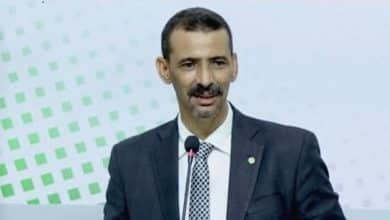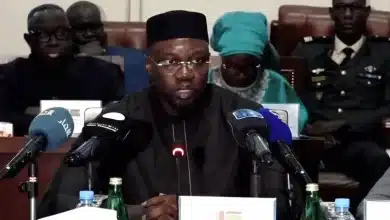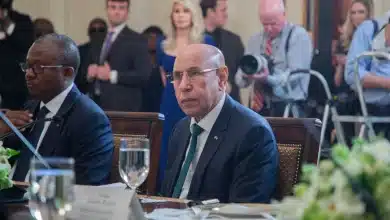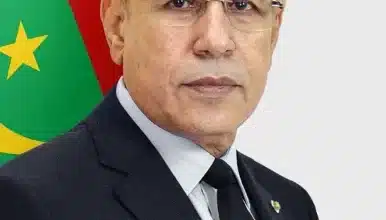Translating is stabbing national cohesion in the back!
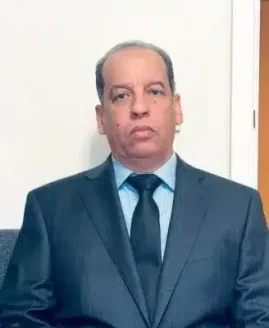
Translating is stabbing national cohesion in the back!
At odds with the Black African nationalists, Mauritanian ethnicists have been fighting since the independence to impose the opposite of Nyerere’s foresight, i.e. they want the institution of a Mauritanian exception: linguistic “Bantustanisation”. Since uniformity and homogeneity are contrary to their ethnic objectives, they invoke respect for cultural diversity and condemn their national community to division underpinned by a deaf-mute linguistic pluralism.
In neighbouring Senegal, the number of national languages is five or six times that of Mauritania. With so much diversity, the Senegalese people understand each other, without any complexity or clash, through a common national language, Wolof. In addition, no citizen of this country, whether of Arab, Mauritanian, Lebanese, or Moroccan origin, can think of transgressing this law.
One must be a stubborn communitarian fanatic not to comply with this rule.
During the last presidential campaign of 2019, Mauritanians saw Fula and Tekrur political leaders campaigning in the Senegal River Valley, speaking in Wolof. President Macky Sall, himself a Tekrur by origin, did not deviate from the rule, and in general, when he addresses his people, he does so in Wolof. Better still, in parliament, the national representation of Senegal’s multi-ethnic and multicultural people, it is impossible to see a helmeted MP or a dissenting voice demanding interpretation.
On the other hand, on this side of the river, most southern executives say they are out as soon as their northern compatriots speak in Arabic or even in vernacular Hassaniya.
The Mauritanians speak at cross-purposes without translation at every administration, meeting, and level. Parliament and the Council of Ministers are no exception. Indeed, as far as the Valley is concerned, with a few rare exceptions, MPs wear simultaneous translation headsets during parliamentary debates; ministers get a French version of communications in the Council of Ministers, and this is a rule; furthermore, executives and politicians often express themselves in French on television.
It follows that anyone who asks for the translation of mere political statements will also, logically, ask for the Friday sermons that are said in Arabic to be translated for him.
Strangely enough, some Black ethnicists always pretend to ignore literary or vernacular Arabic. The following incident is proof of this:
One day, a high-ranking political leader from the Valley went on a pilgrimage to Mecca. This leader always claimed not to understand Hassaniya and demanded translation. One of his colleagues, a Mauritanian Arab, had also decided to perform Hajj. Arriving last at the holy places, the Mauritanian Arab surprised his Black compatriot conversing with Moroccans in vernacular Arabic!
The case of the UFP
They were young Arab nationalist cadres, together with other Black nationalists and some leftists; together, they had founded the National Democratic Movement, which, with democratisation, became a political party called the Union of Progressive Forces (UFP). These patriotic men and women were ambitious to set their society in motion and in tight order.
Today, after more than 40 years of everyday struggle and ordinary political life, the UFP’s cadres and militants still only understand each other through translation. No ethnic segment of the party is ready to make concessions and develop a common language of communication with the other militants, first for themselves and then to serve as cement for their multilingual people. In this way, the UFP has become a life-sized translation school, convinced that linguistic confusion is a national virtue!
Furthermore, suppose the Mauritanian Arabs refused to play the ‘niggers of service’ and stopped translating from Arabic into French and from French into Arabic; what communication would be possible between Mauritanians?
Translation is inappropriate in the life of a nation, between itself and others, but between its social components, it is a fatal failure of integration.
Who is a chauvinist?
The chauvinist is any mature Malian who refuses to speak Bambara because the Bambaras do not speak his mother tongue and would like to impose a foreign language of choice.
The chauvinist is also any mature Senegalese who rejects Wolof for the same reason. The chauvinist is also any mature Mauritanian who behaves similarly in defiance of his country’s constitution, history, and the surrounding reality. Unlike the Bambaras and Wolofs, almost all Mauritanians go to Quranic school at a young age to learn Arabic and continue with it in an officially Franco-Arabic education system.
Even if the school was not like that, whoever lives or stays in China, for example, for a long time always speaks Mandarin without going to school by picking it up through immersion in the society .
How can one fail to learn a language when the atmosphere is right? The street, the souk, the press, the radio, the television, and everything invites us to learn the ambient language to understand, communicate, and interact with most of the population.
A nation that evolves with a corps of interpreters and translators will find it difficult to evolve together. After 60 years of statehood, the divisive language issue is still pending.
Ely Ould Sneiba
Mauritania: the ethnic issue explained.

